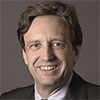The New Commandments, Part 2
The SEC’s budget, or appropriated funding as it is known, was $906 million for FY2008, having risen 11.5 percent annually since 2001. Investor complaints however, have barely increased. From 2001 to 2007 their annual growth was just 1.6 percent.
According to a Rand Corporation study of investment advisors and broker-dealers registered with the SEC, the combined total of these grew at an annualized rate of just 3.4 percent over the five years 2001 – 2006, but this growth rate was skewed by some 700 hedge funds that subsequently deregistered after the study’s end point; excluding these the annualized growth would shrink to just 2.5 percent. All of the growth has come on the investment advisor side, and these are typically very small operations compared to broker-dealers.
So similar to the story of the NASD, the data support the case that absent a sudden behavioral shift towards an epidemic of white collar crime, the SEC is a self-perpetuating bureaucracy bent on growing rapidly, which increasingly burdens the much slower growing sector that it regulates.
The sensational case regarding conflicts between research and investment banking has only slightly rolled back the linkage of these two activities through barring direct ties between these departments at the large investment banks. The $400 million directed as a subsidy to independent research is set to expire in 2009, with no one clamoring for its extension.
The mutual fund trading scandal has continued the new tradition for mega-settlements, enabling SEC commissioners such as Roel Campos to crow that “American mutual fund investors have been under attack,” and “billions of dollars were literally stolen from investors by executives . . . (who) participated in sweetheart schemes in which privileged third parties such as hedge funds were allowed to market time mutual funds and engage in late trading …” Were it not for the shaky condition of the financial markets, we would see major settlements from the largest financial institutions once again, including possibly the GSEs, which instead now appear on the road to becoming full-fledged government agencies.
Merriam-Webster defines despotism as “a system of government in which the ruler has unlimited power.” The government may never nationalize its financial institutions, but despotism amounts to something worse. Like citizens of the former Soviet Union, its officers and employees are asked to be both jailer and inmate, informer and informant, with no crime having yet been committed.
Yes, there are those who would commit fraud. But the burden upon those who sincerely aim not to do so is extraordinary, and it is getting heavier with the passage of each new rule. Somehow it seems that ill-intentions might be mostly a function of human nature, and thus would not be reduced by the tightening net of the law. If as Dostoevsky’s Ivan Karamazov contended that if there is no God, everything is permitted, then in reality into this vacuum rushes the state. It is a merciless, cold master rather than a forgiving father.
When a people lose their respect for morality and spiritual absolutes, then investors no longer can weigh the measure of a man, but must look to the state to impose a gaggle of restrictions in a costly and barely effective trap to catch the truly criminal. They feel relieved of having to perform due diligence, but in so doing make themselves more vulnerable, because as we have found in the meltdown of so many financial entities lately, schemes to part the public with its money are always with us.
No one declared before its toppling that the pleasingly high-yielding Bear Stearns hedge funds were filled with toxic investments. Or more fittingly, such declarations were actually yelled from the treetops in the dense jungle of private placement memoranda heavy as small town phonebooks.
Because of the intense regulation and threat of liability, the makers of such investment vehicles all manufactured hundreds of pages of documentation requiring signatures and initials. In so doing, they release themselves of guilt should anything go wrong (which happens to some percentage of any risky investment by nature), but investors learn to ignore this rubbish and even associate the better-run firms with the most official looking and weightiest paperwork. In the end, the despot takes his cut, the investors lose out and honorable money managers are burdened.
Regards,
Bill Baker,
for The Daily Reckoning
[Editor’s note: This passage is reprinted from William W. Baker’s book, Endless Money: The Moral Hazards of Socialism, with the permission of John Wiley & Sons, Inc (©2010). You can get your own copy of his book here.]


Comments: